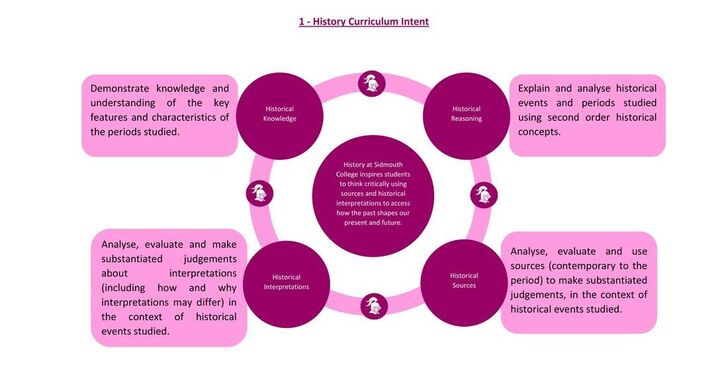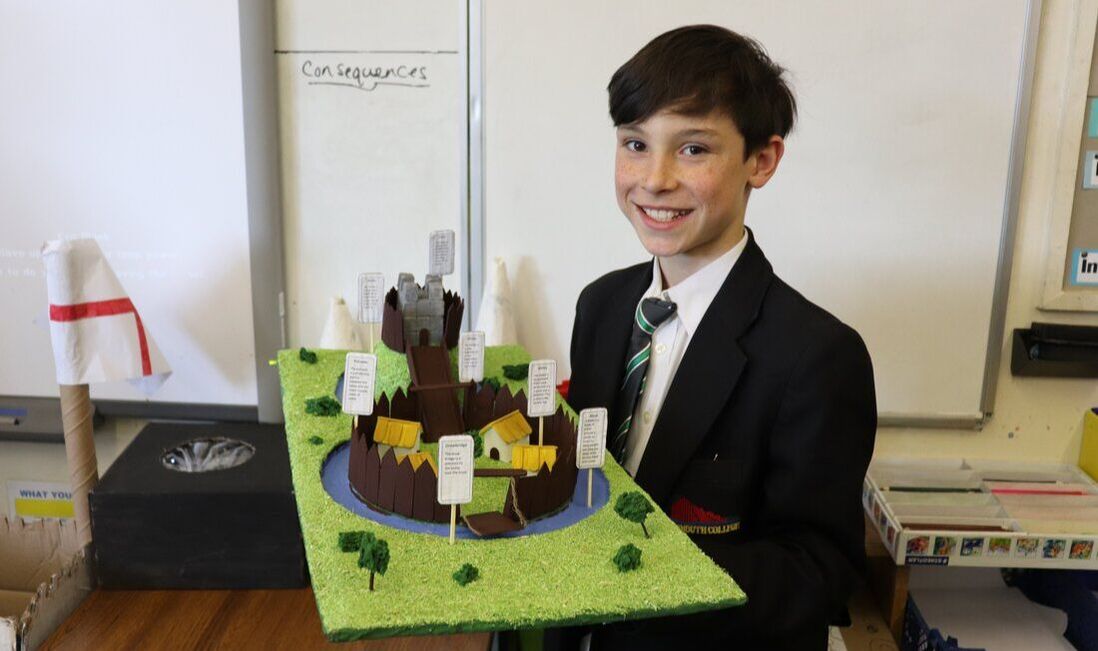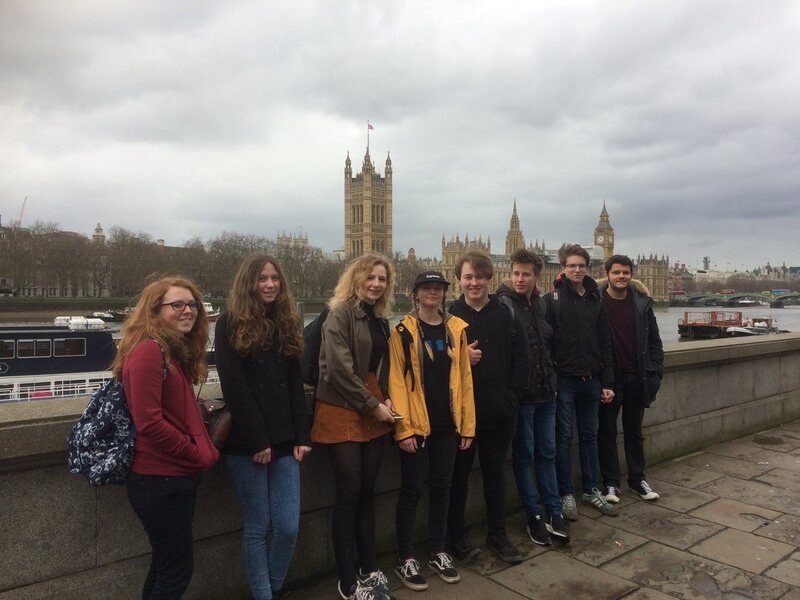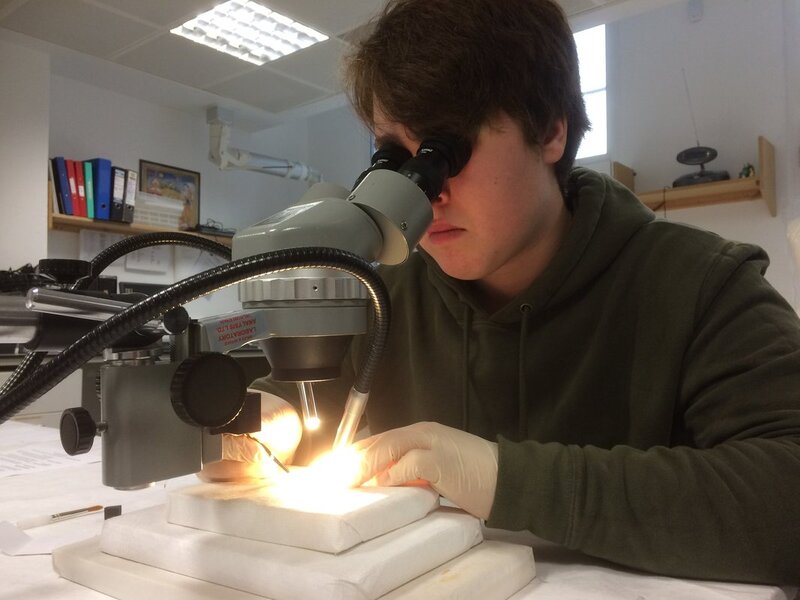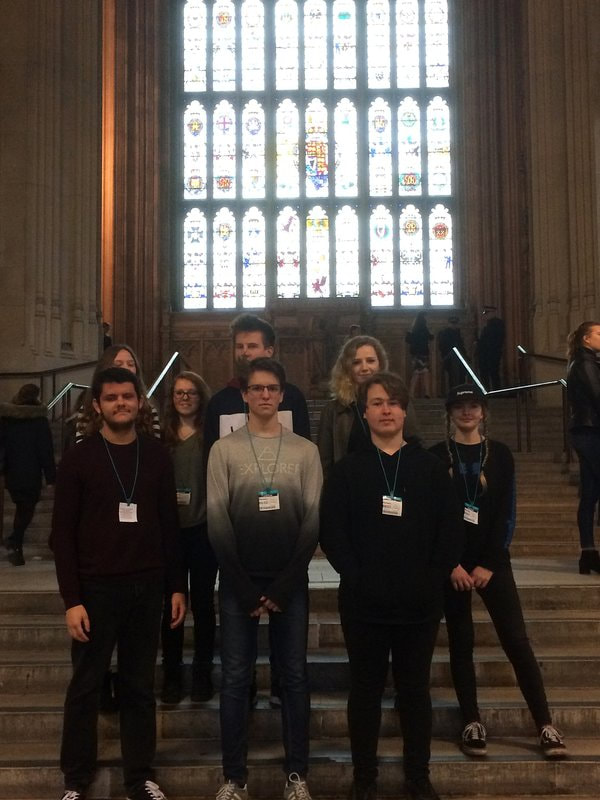History Department IntentKey stage 3
At Key Stage 3, students study changes in the economy, society, culture and political structure of Britain, from the early Middle Ages to the Twentieth Century. They also study aspects of European and non-European history, and are encouraged to make links and connections between historical events and changes in the different periods and areas studied.
Students have opportunities to: use their historical knowledge to evaluate; use a variety of sources of information; construct narratives, descriptions and explanations of historical events and developments. What do students study? The course content for each year is as follows: Year 7 Historical Key Skills Norman Conquest Medieval Life Reformation Elizabethan England Year 8 Native America Slavery Industrial Revolution Year 9 Origins of the First World War Life and Battles: First World War Inter War Years and the Rise of the Nazis Nazi Germany How are students assessed? Students learn how to make judgements about their own work and also have opportunities to engage in peer-assessment. At the end of a unit, the teacher will indicate the route at which the student is working and provide feedback with suggestions for improvement. Many assessments take the form of exam style questions to help prepare students for KS4. Key stage 4
WHO IS THIS COURSE FOR? · Students wishing to study the English Baccalaureate pathway. · People who like learning about the past and how it has impacted on our lives today. · Students with strong literacy skills. EXAM BOARD, COURSE CONTENT & ASSESSMENT DETAILS EXAM BOARD: Edexcel COURSE CONTENT AND ASSESSMENT DETAILS: 1. Paper 1 - Medicine through Time, c1250-present. [Thematic Study and Historical Environment Study] Written Examination; 1 hour and 20 mins - 30% of the qualification. This paper will consist of;
2. Paper 2 – Elizabethan England and The American West [Period and British Depth Study] Written Examination; 1 hour and 15 mins - 40% of the qualification. This paper will consist of; · A British Depth Study - Early Elizabethan England, 1558–88; a study which focuses upon Queen Elizabeth I, politics and religion, challenges to her authority and Elizabethan society in the Age of Exploration. · A Period Study - The American West, c1835–c1895; a study which looks at the early settlement of the West, developments on the Plains and conflict and conquest. 3. Paper 3 – Weimar and Nazi Germany [Modern Depth Study] Written Examination; 1 hour and 15 mins - 30% of the qualification. This paper will consist of; · A Modern Depth Study - Weimar and Nazi Germany, 1918–39; a study focusing on initially the Weimar Republic and Hitler’s rise to power, then move on to consider Nazi control and dictatorship and life in Nazi Germany. WHAT CAN THIS COURSE LEAD TO POST 16? A Level History, Classics, Philosophy and complement a range of courses through developing strong literacy skills. FOR WHAT CAREERS WILL THIS COURSE BE USEFUL? People with a background of studying History at GCSE, A Level or Degree go in to a number of different career paths which include; Policing and Legal Professions, Business, Teaching, Journalism, Media, Armed Forces, Archaeologists and Anthropologist. Reasoning for this is the transferable skills that History offers as a subject, which include; research, questioning, linking information together, planning, independent thought, reasoning, and evidential based work. Key stage 5
Introduction History is a challenging, exciting and relevant A Level subject, which can help make sense of current issues and ideas. The strands of the subject include; the story of events in the past, an appreciation of how historians have interpreted these events, the evaluation of sources, weighing up arguments, using analysis and reaching a conclusion. A variety of approaches to study are involved to help to develop this understanding. By the end of the course students should have developed their critical and analytical skills plus their ability to produce well directed written answers. History is a respected qualification and future employers recognise what it represents. Nikita Kruschev said “Shoot the historians, they’re dangerous!” What do students study? The course involves the study of both British and European History. The paper 1 British element is the breadth study of democracy, protest and reform c1785-c1870. It also includes a depth study of historical interpretations of the abolition of the Slave trade. The European part of the course looks at the unification of Germany c1840-1871. This includes a study of the German states in the 1840s, the failure of the revolutions of 1848-49, the decline of Austrian power and the creation of a new German state under the leadership of Prussia in the years to 1871. Students studying A Level History will also include a piece of coursework that will be focused upon a historical controversy that has come out of the causes of the First World War. At the same time the students will also study an externally assessed part which looks both in breadth and in depth focused upon the Civil rights and race relations in the USA, 1850 – 2009. How are students assessed? Units 1 to 3 are examined externally. The coursework is set internally and then examined internally then moderated by the exam board, Edexcel. Comments are closed.
|
Access Octomono Masonry Settings
Subjects
All
|
- Home
-
About Us
- About our School
- Board of Governors
- Careers & Education Guidance
- Contact
- Equality
- Ethos and Values
- Exam Results >
- Hire of School Premises
- Links & Partnerships
- Ofsted Reports
- Our People
- Performance Data
- Policies
- Principal's Welcome
- Pupil Premium
- SEF & College Priorities
- Sidmouth College Way
- Ted Wragg Trust
- Vacancies
- Visitor Information
- Wellbeing at School
- Admissions
- Learning
-
Parents
-
Students
- Sixth Form
Useful links |
Navigate |
|
© Sidmouth College 2020 | Primley Road, Sidmouth, Devon EX10 9LG | Website design by Bright Blue C

